Aging is a natural process that we all go through. Often, the invisible changes, such as a decline in cognitive performance or cardiovascular function, are particularly challenging. But what if we could actively influence this process? This is where omega-3 fatty acids come into play. These essential fatty acids have long been researched for their health benefits, and more and more studies show that they play an important role in the aging process. Followers of the " longevity " trend swear by omega-3 fatty acids to promote a long life.
Here you will find out...
The most important things in brief
Omega-3 fatty acids are essential nutrients that play an important role in healthy aging, especially heart health, brain function, and vision.
Fatty fish such as salmon or mackerel provide valuable omega-3 fatty acids, but should not be consumed more than twice a week due to possible heavy metal contamination.
Omega-3 needs can be met even without fish : Vegetable oils and certain seeds and nuts provide ALA, while algal oil is a direct source of EPA and DHA. High-quality supplements offer an easy way to optimize your intake.
Why are omega-3 fatty acids important for health?
Omega-3 fatty acids are essential fatty acids. This means our bodies need them for numerous vital functions but cannot produce them themselves. Therefore, they must be obtained through food.
The most important omega-3 fatty acids and their sources:
ALA (Alpha-Linolenic Acid): Flaxseed oil, Chia seed oil, Walnuts
-
EPA (eicosapentaenoic acid): fish oil (mendhaden, salmon), Pacific herring
DHA (docosahexaenoic acid): fish oil (salmon), mackerel, smoked salmon with skin (1–3)

However, modern diets often contain a high proportion of omega-6 fatty acids, especially from sunflower and corn oil, as well as animal fats. Since omega-3 and omega-6 fatty acids compete for the same enzymes in the body, an excess of omega-6 can impair the utilization of omega-3 and have negative health effects (4) . Learn how to adjust your diet for a healthy lifestyle.
Good to know : Why ALA alone doesn't meet your needs. Although ALA is a very valuable source of omega-3 in a plant-based diet, it alone isn't enough to meet your entire omega-3 needs. While the body can convert ALA into EPA and DHA, this process is extremely inefficient. Approximately 10 g of pure ALA would be required for 1 g of EPA, an amount that is difficult to achieve through a normal diet (5) .
How Omega-3 fatty acids affect the body
Omega-3 fatty acids play a crucial role in cellular health by influencing the composition and properties of cell membranes . These membranes consist of phospholipids, which are responsible for cell mobility, flexibility, and temperature stability.
Cholesterol also contributes to the flexibility of cell membranes. However, if essential omega-3 fatty acids are lacking, the body must incorporate more cholesterol into the cell membrane to maintain its physical properties.
An imbalance in fatty acid intake can promote oxidative processes that lead to the formation of free radicals. These free radicals can cause cell damage and promote the accumulation of cholesterol in the blood vessel walls, clumping, and forming crystalline deposits (plaques). Such plaques can narrow and harden blood vessels, which can increase the risk of numerous diseases (6) .
The effect of omega-3 fatty acids on the heart
Numerous studies have examined how omega-3 fatty acids affect the cardiovascular system , particularly with regard to cholesterol and triglyceride levels, blood pressure, and the risk of cardiovascular disease. These studies show that both the type of omega-3 fatty acids and the dosage play a crucial role in their effects.
The results of different studies vary somewhat, partly due to the different omega-3 sources examined. These range from fatty fish and fish oil to plant-based alternatives such as walnuts. The sources were administered in various forms, such as oils, capsules, or unprocessed foods (7) .
The European Food Safety Authority (EFSA) confirms that EPA and DHA in particular contribute to normal heart function (8) .

How to optimize your Omega-3 intake : The absorption of omega-3 fatty acids depends heavily on the fat content of the meal with which they are consumed. For example, taking omega-3 fatty acids with a high-fat meal can achieve a particularly high absorption rate of up to 90% (9) .
How can omega-3 fatty acids affect aging?
Telomeres , often described as the "protective caps" of our chromosomes , play a central role in aging . They prevent our genetic material from losing stability with each cell division. However, with increasing age, telomeres naturally shorten, which can increasingly limit cellular function.
If they are too short, this can limit cell function and is associated with age-related diseases. However, the rate of this shortening is not the same for all people. It is influenced by cell division, genetic factors, oxidative stress, and inflammation, among other factors. This means that it is not just a matter of lifespan, but potentially modifiable .

A number of studies have investigated the effects of omega-3 fatty acids on various mechanisms of action related to telomere shortening:
Oxidative stress : Free radicals are harmful molecules that, through their reactivity, can damage cell structures such as telomeres.
Inflammation : Chronic inflammation can cause telomeres to shorten more rapidly.
Cell protection mechanisms : Certain enzymes help to stabilize and repair telomeres (10) .
The role of omega-3 fatty acids in brain health
A frequently feared sign of aging is forgetfulness or cognitive decline. Omega-3 fatty acids can also play an important role in this area. According to the EFSA, DHA in particular contributes to supporting normal brain function . This effect occurs with a daily intake of 250 mg of EPA and DHA.
Even in early childhood, an adequate supply of omega-3 fatty acids is crucial for the development of cognitive and language skills. Inadequate intake can negatively impact the child's motor, social, and communicative development (11) .
Omega-3 fatty acids can also have a protective and preventative effect later in life. Through their positive influence on cells, they contribute to their longer health and can thus reduce the risk of cognitive disorders (12, 13).

The best tips for integrating Omega 3 into your daily life
Although it may seem challenging at first to incorporate omega-3 fatty acids into your daily routine, it's actually much easier than you think. With a few simple steps, you can effortlessly meet your needs.
Valuable tips on how to incorporate more Omega-3 into your diet:
- Fatty fish : Include salmon, mackerel, or herring in your diet once or twice a week. You can prepare them in a variety of ways: in the oven, on the grill, or in a pan .
- Plant sources : Chia seeds, walnuts, and flaxseeds are great plant-based alternatives for omega-3. Sprinkle them over your cereal, salad, or mix them into your yogurt.
- Use oils : Refine your salads or smoothies with a tablespoon of flaxseed oil or walnut oil .
- Omega-3 capsules : If you find it difficult to get enough Omega 3 from your diet, high-quality capsules can be a practical supplement.

Is fish a good source of omega-3?
Fatty cold-water fish are among the best sources of EPA and DHA. However, research shows that omega-3 content can vary greatly depending on the fishing area and the time of year. Furthermore, many fish species are increasingly contaminated with heavy metals and mercury, which can pose a particular risk to pregnant and breastfeeding women. In such cases, dietary supplements can offer a sensible alternative for consuming high-quality, consistent doses of essential fatty acids without harmful substances (14) .
White Omega PLUS puts an end to precisely these challenges : An innovative deep-filtration process significantly reduces harmful substances such as heavy metals. The fish oil comes from responsibly caught, wild-caught small fish and is processed using an oxygen-free process to guarantee unparalleled freshness and purity.
Conclusion
Omega-3 fatty acids are far more than just a nutrient. They are key to supporting health and promoting longevity . These essential fatty acids contribute significantly to cellular health, maintaining cognitive function, and protecting the cardiovascular system. The body can be supplied with these important fatty acids through a targeted integration of omega-3-rich foods such as fatty fish, plant sources such as walnuts and flaxseed, or through high-quality dietary supplements.
Regular intake of Omega 3 can therefore not only help maintain quality of life in old age, but also contribute to actively influencing the aging process. Simple dietary changes can therefore have a long-term, positive impact on physical and mental well-being.
Our expert
What are omega-3 fatty acids?
Omega-3 fatty acids are essential fatty acids that the body cannot produce itself and must be obtained through food.
What effect do omega-3 fatty acids have?
Omega-3 fatty acids, especially DHA and EPA, offer numerous health benefits. They contribute to the maintenance of normal brain function and vision. They also support the maintenance of normal heart function.
How much Omega 3 should you take daily?
To reap the benefits of omega-3 fatty acids, it is recommended to consume at least 250 mg of DHA and EPA daily.
Is fish a good source of Omega 3?
Yes, fish is a good source of omega-3 fatty acids, but it can be contaminated by environmental pollution and heavy metals like mercury, so it should not be consumed more than twice a week. Pregnant and breastfeeding women are not advised to eat fish due to potential risks from contaminants.
Can I consume Omega 3 as part of a vegan diet?
Yes, good plant-based sources include algal oil, chia seeds, flax seeds, and walnuts. Vegan supplements are a good alternative.
References for further reading:
- USDA National Nutrient Database for Standard Reference. Nutrients: 20:5 n-3 (EPA); 2016 [Accessed: August 22, 2023]. Available at: https://ods.od.nih.gov/pubs/usdandb/EPA-Content.pdf.
- USDA National Nutrient Database for Standard Reference. Nutrients: 18:3 n-3 c,c,c (ALA) 2016 [Accessed: August 22, 2023]. Available at: https://ods.od.nih.gov/pubs/usdandb/ALA-Content.pdf.
- USDA National Nutrient Database for Standard Reference. Nutrients: 22:6 n-3 (DHA) 2016 [Accessed: August 22, 2023]. Available at: https://ods.od.nih.gov/pubs/usdandb/DHA-Content.pdf.
- Müller MJ. Optimized nutrition, individualized micronutrient intake, and their influence on psychological/physical/mental performance in executives and competitive/top-level athletes: The relationship between the supply of long-chain omega-3 fatty acids (EPA/DHA) and micronutrient intake. Bielefeld: University of Applied Sciences for Small and Medium-Sized Businesses; 2020.
- Haller D, Grune T, Rimbach G, eds. Biofunctionality of Food Ingredients. Berlin, Heidelberg: Springer Berlin Heidelberg; 2012. (Springer textbook). Available at: http://nbn-resolving.org/urn:nbn:de:bsz:31-epflicht-1591301.
- Vilgis TA. Biophysics of Nutrition. Berlin, Heidelberg: Springer Berlin Heidelberg; 2022.
- Abdelhamid AS, Bwn TJ, Brainard JS, Biswas P, Thorpe GC, Moore HJ, et al. Omega-3 fatty acids for the primary and secondary prevention of cardiovascular disease. Cochrane Database Syst Rev 2020; 3(3):CD003177. doi: 10.1002/14651858.CD003177.pub5
- European Food Safety Authority. Scientific Opinion on the substantiation of health claims related to docosahexaenoic acid (DHA), eicosapentaenoic acid (EPA) and brain, eye and nerve development (ID 501, 513, 540), maintenance of normal brain function (ID 497, 501, 510, 513, 519, 521, 53). EFSA Journal 2011; 9(4):2078. doi: 10.2903/j.efsa.2011.2078
- Lawson LD, Hudges BG. Absorption of eicosapentaenoic acid and docosahexaenoic acid from fish oil triacylglycerols or fish oil ethyl esters co-ingested with a high-fat meal: Biochem Biophys Res Commun; 1988 [as of August 22, 2023]. Available at: https://pubmed.ncbi.nlm.nih.gov/2847723/.
- Ogłuszka M, Lipiński P, Starzyński RR. Effect of Omega-3 Fatty Acids on Telomeres-Are They the Elixir of Youth? Nutrients 2022; 14(18). doi: 10.3390/nu14183723
- Martins BP, Bandarra NM, Figueiredo-Braga M. The role of marine omega-3 in human neurodevelopment, including Autism Spectrum Disorders and Attention-Deficit/Hyperactivity Disorder - a review. Crit Rev Food Sci Nutr 2020; 60(9):1431–46. doi: 10.1080/10408398.2019.1573800
- Zhang X, Han H, Ge X, Liu L, Wang T, Yu H. Effect of n-3 long-chain polyunsaturated fatty acids on mild cognitive impairment: a meta-analysis of randomized clinical trials. Eur J Clin Nutr 2020; 74(4):548–54. doi: 10.1038/s41430-019-0544-4
- Wood AHR, Chappell HF, Zulyniak MA. Dietary and supplemental long-chain omega-3 fatty acids as moderators of cognitive impairment and Alzheimer's disease. Eur J Nutr 2022; 61(2):589–604. doi: 10.1007/s00394-021-02655-4
- Blume K. Intake of environmental contaminants via food (cadmium, lead, mercury, dioxins, and PCBs): Results of the LExUKon research project. Berlin: Federal Institute for Risk Assessment; 2010. (Information) [As of: August 22, 2023]. Available at: https://www.bfr.bund.de/cm/350/aufnahme_von_umweltkontaminanten_ueber_lebensmittel.pdf.



![Zinc Capsules [Zinc Bisglycinate]](http://cellavent.de/cdn/shop/files/CH_essentials-zink-kapseln-Produktbilder_2025.png?v=1760952204&width=104)
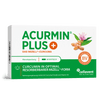
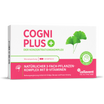
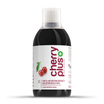

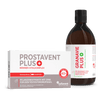
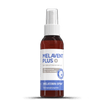
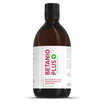
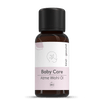





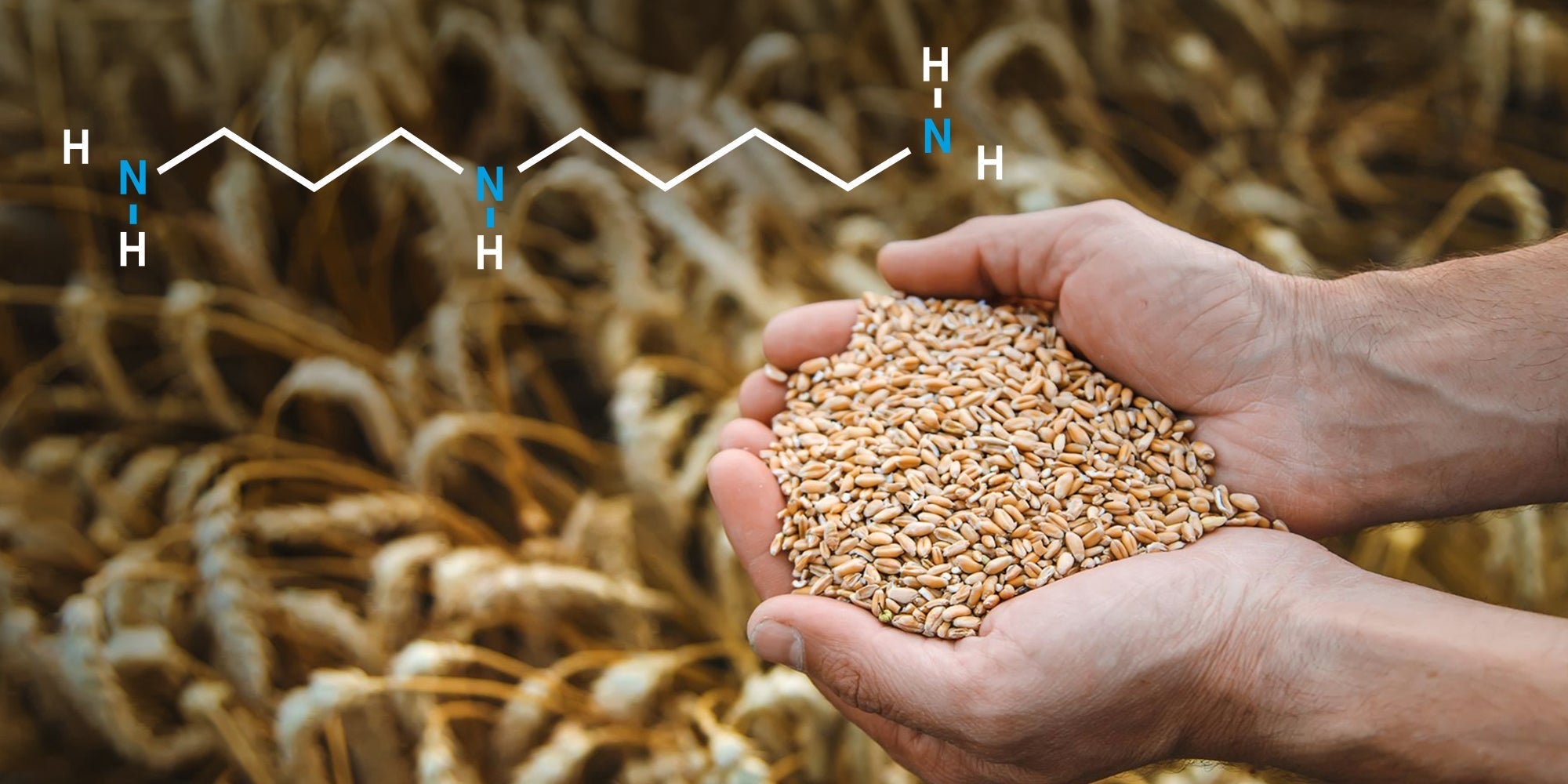
Leave a comment
This site is protected by hCaptcha and the hCaptcha Privacy Policy and Terms of Service apply.